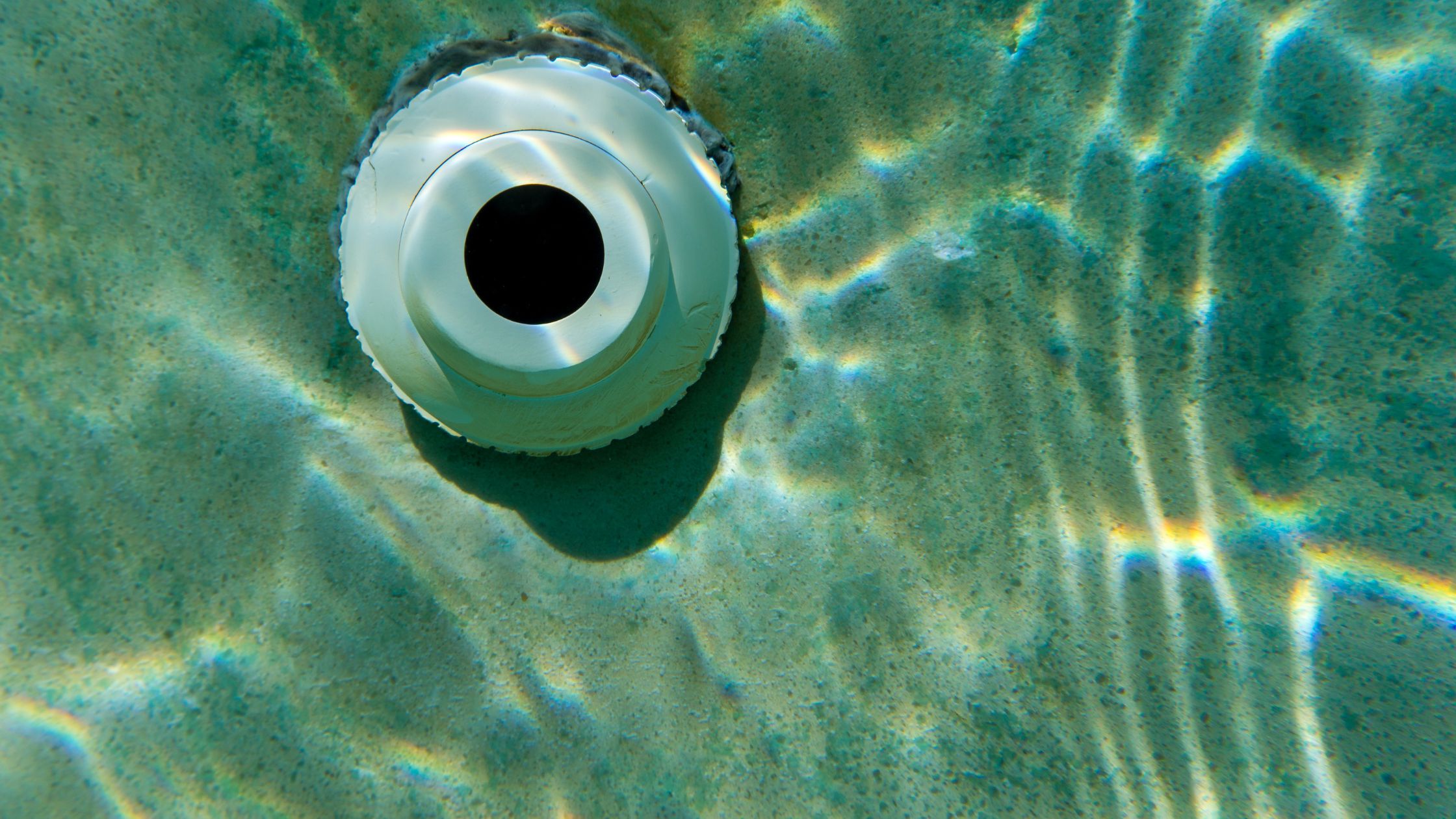Removing pool stains doesn't have to be a daunting task! If you notice unsightly marks on your pool's surface, understanding what causes them and how to tackle them can help restore your oasis. From organic matter to metals, a range of culprits can lead to these blemishes. By following some simple steps and using the right products, like API Water's trusted solutions, you can clean your pool effectively. Don’t let stains ruin your swimming experience—let’s explore the causes of pool stains and how you can get rid of them for good!

The Importance of Free Chlorine
Key Takeaways:
- Understanding Causes: Stains in your pool can come from a mix of things, like leaves and debris, metals in the water, or too much calcium. Figuring out what’s causing the stain is the first step to getting rid of it.
- How To Remove Them:Organic stains from things like leaves can usually be treated with chlorine to fade or remove them. Metal stains or calcium buildup might need a pro’s help, while calcium buildup can often be scrubbed away with a pumice stone or a good pool cleaner.
- How to Prevent Stains: Keep your pool looking great by staying on top of regular maintenance. Test your water often, clean your pool regularly, and make sure your chemicals are balanced. Using trusted products, like those from API Water, can make the job even easier.
What Are Pool Stains?
To keep your pool looking pristine, it’s important to understand what pool stains are. Pool stains are discolorations on the surface of your pool, which can detract from its appearance and make your swim less enjoyable. These stains can arise from various sources and may require different methods to remove them effectively. Knowing what causes these stains can help you remove the ones you have and understand how to prevent future ones.
Types of Pool Stains
To help you identify the stains you're dealing with, here’s a breakdown of common pool stain types:
Type | Description |
|---|---|
Organic | Usually caused by leaves, plant debris, or algae. |
Metal | Generally from excess metals in water, like copper or iron. |
Calcium | Show up as white, chalky deposits due to buildup. |
General Debris | Stains from debris left unattended and not cleaned. |
Other | Includes stains from spills or foreign substances. |
Each type of stain requires its own approach for effective removal.
Factors Contributing to Pool Stains
Stains can appear in any pool, but knowing what causes them can help you stay ahead of the problem. Here are some common culprits:
- Organic debris breaking down in the water.
- High levels of metal in pool water.
- Calcium buildup from chemical imbalances.
- Inconsistent maintenance routines.
- Environmental factors, like overhanging trees or nearby plants.
By identifying these causes, you can take proactive steps to keep your pool sparkling and stain-free.
For example, the organic matter around your pool—like leaves or flowers—can cause specific stains if not cleaned up promptly. Similarly, metals from plumbing or pool equipment can seep into the water, causing discoloration that’s often challenging to remove. Staying consistent with maintenance helps prevent these problems before they turn into stubborn stains.
- Enclosed spaces that trap debris.
- Overhanging trees that drop leaves or fruit.
- Not testing and balancing water chemistry regularly.
- Neglecting routine cleaning and skimming.
- Inadequate equipment maintenance.
Recognizing these risks can make a significant difference in maintaining a beautiful, inviting pool. Make sure you keep your pool routine consistent, including seasonal preparations, like winterizing your pool with products from API Water, to help prevent stains and other issues.
Tips for Identifying Pool Stains
Identifying pool stains can be tricky, but understanding their source is the first step to getting rid of them. Here are some easy tips to figure out what’s behind those pesky marks:
- Test for organic stains by applying a small amount of chlorine. If the stain fades or lightens, it’s probably organic.
- Look at the color: Green or brown stains often point to organic matter, while blue-green stains could mean copper is the culprit.
- Feel the surface: If it’s rough or gritty, calcium buildup is likely the cause.
Knowing what type of stain you’re dealing with will help you choose the best cleaning method to make your pool sparkle like new! Consult with your local pool professional for additional assistance in identifying your specific issue.
Step-by-Step Guide to Removing Pool Stains
You can tackle pool stains with ease by following this straightforward guide. First, identify the type of stain and gather the necessary tools and materials. Then, apply the right stain removal technique to restore your pool’s appearance. Regular maintenance will help you prevent stains in the future, so remember to test your pool water often!
Tools and Materials You’ll Need
- Pool brush
- Stain remover Chlorine
- Water testing kit
- Pool vacuum
- Shock treatment
- Gloves and safety goggles
- Bucket
- Towels
- Stiff broom
Stain-Specific Removal Techniques
Understanding how to remove specific types of stains can make your cleaning process much easier and more effective:
- Organic Stains: Use a chlorine shock treatment to break down the stain, followed by brushing the surface with a pool brush. This method can often lighten or completely remove stains caused by leaves, algae, or other organic materials.
- Metal Stains: These stains are often caused by metals like copper or iron in the water. Testing your water is the first step. For effective removal, consult a pool expert who can recommend specialized chemical treatments designed for metal stains. APi’s Revive! WEEKLY is ideal for preventing these types of stains from returning.
- Calcium Buildup: Calcium deposits can create rough, white stains on pool surfaces. For effective removal, consult a pool expert who can recommend specialized chemical treatments designed for calcium buildup. Revive! WEEKLY is ideal for preventing future buildup.
Knowing the type of stain you’re dealing with is key to selecting the right method. With the right approach, you’ll achieve the best results and keep your pool looking its best.
How to Prevent Future Pool Stains
Keeping your pool stain-free is easier than you think with a little routine care!
- Test your water regularly to ensure it’s balanced and free of harmful imbalances.
- Skim debris daily to remove leaves and organic matter before they settle and cause stains.
- Check your pool equipment for any signs of wear that could introduce metals or other contaminants into the water.
- Use a high-quality winter cover to protect your pool from organic debris during the off-season.
By staying consistent with these simple steps, you’ll maintain your pool’s beauty and extend its lifespan, ensuring years of stress-free swims!
Pros and Cons of Different Stain Removal Methods
Maintaining your pool’s pristine appearance means finding the right stain removal method for the job. Here’s a breakdown of the pros and cons of popular techniques to help you decide what works best for your needs:
Type | Description | Description |
|---|---|---|
Chlorine Treatment | Easy to apply for organic stains. | Ineffective on metal stains. |
Professional Help | Expertise ensures effective removal and maintenance. | Can be more costly than DIY methods. |
Regular Maintenance | Prevents stains from forming in the first place. | Requires a consistent weekly application. |
Shock Treatment | Useful for various stains. | Requires waiting for chlorine levels to drop before swimming. |
Acid Wash | Deep cleans and removes stubborn stains. | Harsh on pool surfaces and should be used sparingly. |
Stain Testing Kits | Helps identify the type of stain for targeted removal. | May require additional purchases for specific treatments. |
Preventative Products | Reduces future stains and eases maintenance. | Must follow instructions carefully for effective results. |
Environmental Measures | Natural and eco-friendly options available. | Less effective on tougher stains. |
For effective winter preparation and maintenance tips, check out recommendations for your pool on API Water. Keeping your pool clean and well-maintained will make stain removal easier in the long run!
Wrapping Up: Pool Stains are Preventable and Treatable
By following this guide, you can confidently tackle pool stains and keep your backyard oasis sparkling. Identifying the cause—whether it’s organic debris, metals, or calcium buildup—helps you choose the best cleaning method for the job. Remember, regular maintenance is your strongest defense against stains. Using high-quality products, like Revive!® and Revive!® WEEKLY, can make pool care simpler and more effective. With their reliable solutions for maintaining water chemistry and preventing stains, you can enjoy a stress-free swimming experience all season long!
Product Recommendations: The API Water Advantage
When it comes to tackling pool stains and preventing them from returning, API Water offers trusted solutions designed to simplify pool care and maintenance:
- E-Z POOL®
This all-in-one pool care program combines multiple treatment steps into one convenient product. Its unique formula contains a strong chlorine-free shock and helps prevent stains caused by metals and calcium deposits while maintaining balanced water chemistry. With E-Z POOL®, you can keep your pool clean, clear, and stain-free with minimal effort. - REVIVE!®
A powerful stain and scale inhibitor, REVIVE!® removes contaminants such as metals, organic debris, and phosphates. It is perfect as a pre-treatment for opening or closing your pool or for addressing stubborn water discoloration caused by metals. Regular use can prevent future stains while keeping your water sparkling clear. - OXY SPLASH™
This chlorine-free shock treatment is a great solution for removing organic contaminants from your pool water. By breaking down debris and reducing organic material, OXY SPLASH™ helps prevent stains caused by leaves, plant matter, and other organic materials while boosting overall water clarity. - ENZymePro®
A highly effective enzymatic cleaner, ENZymePro® breaks down oils, lotions, and other organic materials that can contribute to pool stains and cloudy water. Regular use of ENZymePro® reduces the buildup of organic debris on your pool’s surfaces and enhances the effectiveness of your filtration system. - Winterizing with REVIVE!®
REVIVE!® before closing your pool for the off-season to remove metals and organic contaminants. This step helps protect your pool from stains and discoloration during periods of inactivity, ensuring an easier, stress-free opening next season.
By incorporating these API Water products into your regular pool care routine, you can tackle and prevent stains effectively while maintaining a pristine swimming environment year-round.
